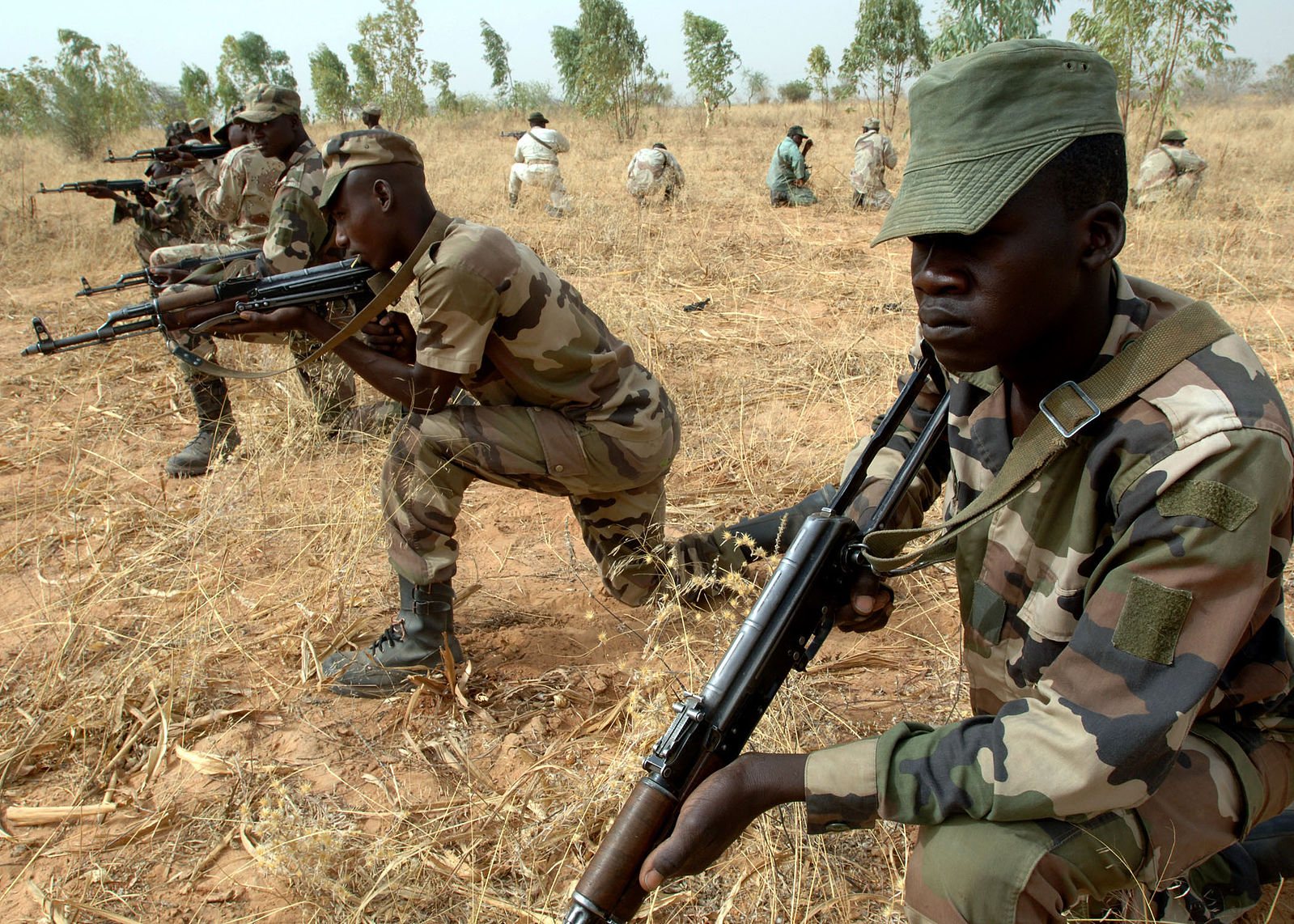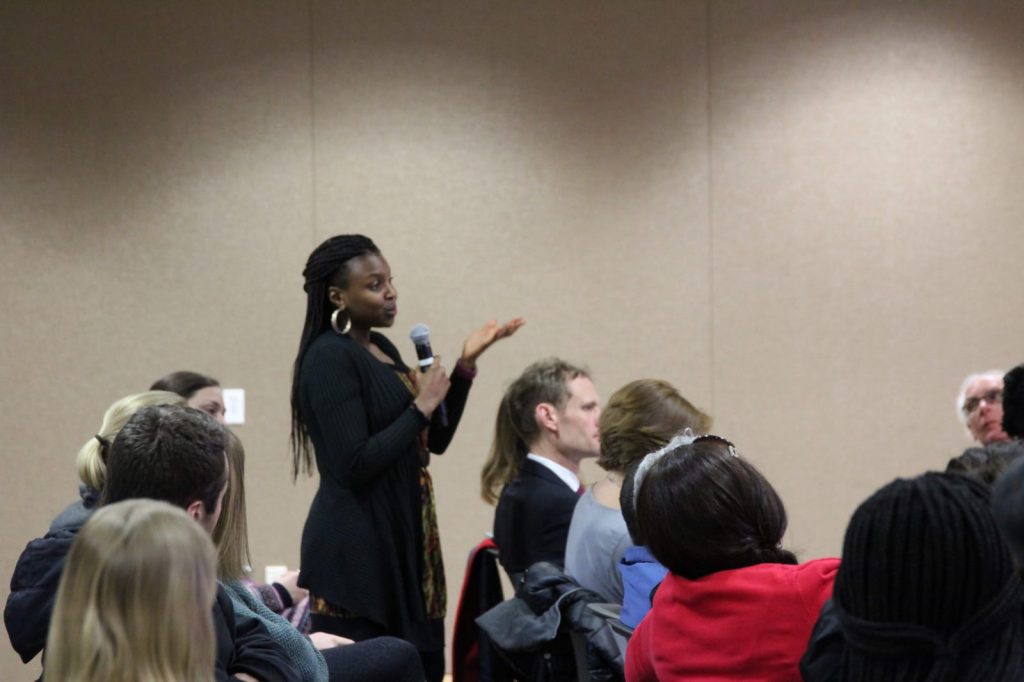Coronavirus Pandemic Poses New Challenges in the Fight Against Violent Extremeism in Northeast Nigeria

Andrew Karl, Research Fellow, Security & Intelligence Policy Lab
akarl@africacfsp.org
After recording the first confirmed case of the novel coronavirus in Sub-Saharan Africa, the Nigerian federal and state governments rapidly mobilized to respond to the outbreak. Despite these efforts, Nigeria has become one of the most affected countries on the continent with over 26,000 cases and nearly 600 documented fatalities. As the number of confirmed cases has increased, so too has the violence perpetrated by Boko Haram factions, Jama’atu Ahlis Sunna Lidda’awati wal-Jihad (People Committed to the Propagation of the Prophet’s Teachings and Jihad, or JAS) and the Islamic State West Africa Province (ISWAP).
Seeking to exploit the emerging crisis, these violent extremist groups have launched a series of attacks since March, punctuated by several large-scale assaults in June that left more than 150 dead over a five day period. While the Nigerian state seeks to quell the recent uptick in violence, counterinsurgency efforts face new challenges posed by the coronavirus pandemic. Threatening to undermine the security gains made in recent years, these challenges include both opportunities for violent extremist groups to instrumentalize the public health crisis to exacerbate long-existing tensions, as well as newly imposed constraints impeding the Nigerian state’s capacity to confront these insurgencies.
Opportunities for Radicalization and Recruitment
Numerous factors have been cited to explain the dynamics of radicalization as seen in northeastern Nigeria. Factors include: ethno-religious rivalries, economic marginalization, authoritarian rule and, corrupt governance. The coronavirus pandemic offers violent extremist groups new avenues to further their objectives of recruiting support and consolidating territorial control.
Indeed, JAS-leader Abubukar Shekau was quick to contextualize the public health crisis in ethno-religious terms, declaring the virus as divine punishment from which, the only cure is to repent to Allah. In an hour-long message, he went on to accuse Abuja of using the outbreak as a false pretense to wage war on Islam, citing policies that closed mosques, halted pilgrimages to Mecca, and public health recommendations that altered observances of Ramadan.
Similarly, JAS and ISWAP will likely seek to exploit the economic fallout resulting from the pandemic. Lockdown orders imposed severe hardships on already-marginalized communities in the conflict-affected Borno, Adamawa and Yobe states–a region which UN observers described as being “among the most severe humanitarian crises in the world.” As unemployment grows, supply chain interruptions continue, and schools remain closed, these economic-based grievances could provide JAS and ISWAP with valuable currency as they seek to recruit support.
Security-sector abuses amid the pandemic have become increasingly visible with police and the military tasked with enforcing lockdown orders. Another longstanding grievance, which violent extremist groups have sought to capitalize on, these abuses include incidences of torture, assault, extortion, and fatal shootings, with video evidence surfacing of police using horsewhips to brutally elicit compliance of lockdown orders. By mid-April, the National Human Rights Council received over 100 complaints of security-sector abuses including extrajudicial killings that resulted in 18 deaths–surpassing the number of coronavirus deaths by that point. The extent to which these security-sector abuses further erode public trust should not be discounted. Recall that Boko Haram’s reorganization as a violent extremist group occurred as a direct result of the extrajudicial killing of Mohamed Youssef and extreme security-sector violence in the Borno State capital of Maiduguri.
Finally, perceptions of Abuja as being marked by corrupt and ineffective federal governance are driving radicalization in northeast Nigeria. Violent extremist groups will likely continue to exploit these narratives, particularly if allegations emerge of either corruption in the disbursement of emergency funds or interruption in service provision in the region. Following the example of Hezbollah, the Taliban, and other groups outside of Africa, the JAS or ISWAP could further expand their legitimacy by offering health services. Prior to the pandemic, ISWAP reportedly filled an array of services, including: digging wells, providing micro-finance loans, policing cattle rustling, distribution of seed and fertilizers, adjudicating land disputes, and offering some limited healthcare services.
Constraints on the Nigerian State
In an editorial released by ISWAP in mid-April, the group foresaw the emergence of new vulnerabilities that Nigeria would face as a result of the pandemic, and suggested that the virus and ensuing economic harm would divert government attention, weaken capacity and increase fragility. Indeed, serious fiscal deficits and shifting priorities have constrained the Nigerian state’s counterinsurgency capacity.
The coronavirus pandemic and subsequent economic fallout has caused severe budgetary shortfalls arising from the unanticipated costs of public health interventions and a steep decline in government revenue. To bolster Nigeria’s chronically underfunded medical sector, state and federal governments moved quickly to counter the spread of the virus through the construction of isolation centers, provision of medical supplies, provision of personal protective equipment, renovation of hospitals, establishment of testing laboratories around the country, and provision of relief items. More significantly, the government incurred these emergency expenditures as oil prices plummeted. Prior to the outbreak, the federal government’s 2020 budget was benchmarked on the expectation that average oil prices would be no less than USD $57 per barrel and production levels would remain in excess of 2 million barrels per day. Far from these predictions, oil prices bottomed out at around USD $18 – the lowest point in eighteen years, and have since mostly remained below USD $30 per barrel. Oil yields account for roughly 60% of the government revenue and more than 90% of Nigeria’s foreign exchange. As a result, administration officials anticipate a decline in government revenues by about 40 to 45% for 2020, pledging a 25% reduction in recurrent expenditures. The extent to which these cuts will affect the security-sector or limited service provision in the northeast is presently unclear. However, it is likely the budgetary shortfalls and current health demands will constrain the state’s capacity to confront the insurgencies in the northeast.
Another constraint arising from the pandemic, is Nigeria’s under-resourced, overstretched security sector which is increasingly redeployed to support the coronavirus response. The Nigerian Army, which already provided the work of police forces in many parts of the country, is now tasked with transporting patients to hospitals, enforcing travel restrictions, guarding government food reserves from looters, and assisting with burials. A recent army memo suspended leave requests for all personnel, instructing soldiers to be on “maximum security alert and be ready for deployment.” Likewise, Nigeria’s poorly trained police and security services were utilized to enforce lockdowns and curfews. The diversion of military and police resources to address the pandemic will likely constrain the state’s counterinsurgency capacity.
Policy Recommendations
- Partner with local, traditional and religious leaders, where possible, for the purposes of public health messaging concerning the coronavirus, and to counter JAS misinformation.
- Enforce strict policing of security-sector abuses and continue to offer transparent accounting of citizen complaints through the National Human Rights Commission.
- Ensure transparency and accountability in the disbursement of emergency funds to avoid perceptions of corruption or inflaming inter-regional tensions.
- Augment security to protect healthcare and aid workers responding to the crisis to avoid interruptions in service provision.
- Implement measures to tighten border security in coordination with Multinational Joint Task Force (MJTF) partners for the purposes of limiting the spread of coronavirus, impeding the ability of violent extremist groups to access cross-border sanctuaries, and maintaining cooperation among MJTF states.
- Maintain security-sector funding and capacities, to prevent ceding security gains and undermining public confidence.


